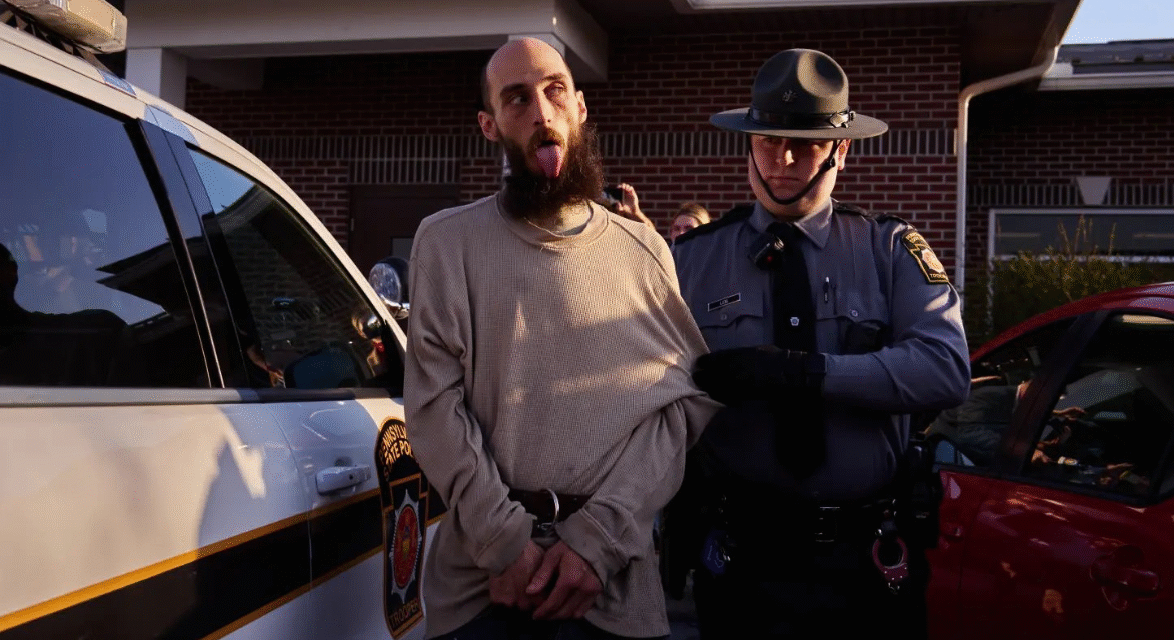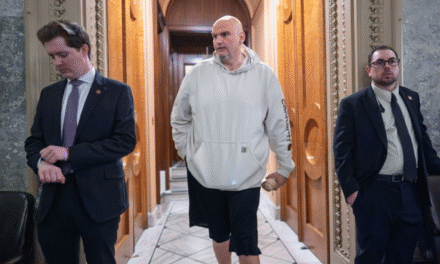“It’s probably the No. 1 question I got when I went home that week from my constituents: How did this happen?” said House Minority Leader Jesse Topper.
The consultant creating a new security plan for the Governor’s Mansion after an April arson attack says some new safety measures and details of the incident will not be made public “for obvious reasons,” leaving Pennsylvanians with more questions than answers.
The attack occurred when 38-year-old Cody Balmer breached the perimeter of Gov. Josh Shapiro’s home, setting multiple fires inside the building with Molotov cocktails and causing significant damage to the historic property. Shapiro and his family were promptly evacuated by State Police officers and escaped the attack unscathed. The act of violence, however, has alarmed many across the state who are concerned about how the perpetrator made it as far as he did.
“Security measures in place to protect the Governor and his family are treated as protected information,” stated consultant Jeffrey Miller, a former Pennsylvania State Police commissioner, who added he is confident his recommendations would “prevent an attack of this nature from succeeding in the future.”
The secrecy surrounding the details of the attack and state response has largely fallen to state legislators to explain to their constituents, though some officials admit they disagree with keeping taxpayers in the dark about what their dollars are doing.
“It’s probably the No. 1 question I got when I went home that week from my constituents: How did this happen?” stated House Minority Leader Jesse Topper. “I do think what happened and why it happened — the failures of the system — we do need some accountability for that. And transparency is the best way to provide that.”
In response to the attack, State Police have publicly shared about several measures being taken to enhance security at the Governor’s Mansion. Current State Police Commissioner Christopher Paris told state lawmakers in a Tuesday letter that new safety protocols include the installation of an “anti-climb” fence and the establishment of a new uniformed unit to provide a visible security presence. Construction for the new fencing has not yet begun, but marker flags around the property suggest that efforts are underway.
Few details have emerged regarding the attacker’s motives or background. The governor has refrained from confirming whether the incident was an act of antisemitism, though the crime has drawn speculation given that it took place immediately after the Shapiro family celebrated the first night of Passover. In a conversation with law enforcement, Balmer said he planned to beat Shapiro with a hammer if he found him while invading the mansion.
State Police did not need to look far to uncover Balmer’s identity following the attack, as he called a county dispatch center to claim responsibility and subsequently turned himself in to law enforcement. Balmer’s family have confirmed that he suffers from mental illness and has completed two stays at a psychiatric hospital.
“What happened and how it happened, I think, is a question that needs to be answered,” Topper concluded, pointing to investigations into the failures of Secret Service after a 2024 assassination attempt on President Trump at a campaign rally in Butler, Pa.
“One of the reasons why we ask for accountability and transparency, whether it was what happened in Butler or whether it’s what happened down the street, is that we need to make sure these things don’t happen again.”






